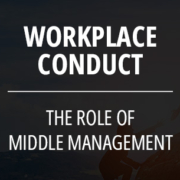ESG – Singapore Financial Services
Course Description
ESG encourages organisations to act responsibly on environmental and social issues in the way they operate and do business. Underpinned by effective governance, this course illuminates the benefits of ESG – not only for businesses, investors, and consumers, but also for the planet and broader society.
ESG is an informative three-module course which provides a unique opportunity for organisations to upskill and enhance their employees’ understanding of ESG, and the legal, regulatory and best practices standards that apply to organisations operating in Singapore.
Framing the issue of climate change as a corporate concern, Module 1 will increase understanding of
how organisations can ensure their operations are environmentally friendly. Module 2 will illuminate
the role organisations play in creating a more equal society. The challenges of modern slavery
and geopolitics are conveyed in an informative and effective manner, prompting learners to reflect on the importance of social governance.
Concluding with Module 3, this module will enhance employees’ knowledge of the least understood yet
most important dimension of ESG – governance. Learners will understand how different features
of organisations can promote good governance.
Who is this training for? Target Audience / Job Roles
Sales, Operations, Relationship Management, Customer Services, Legal, Risk, Compliance, and other relevant functions in Financial Services.
Related GRC Solutions Resources
Custom Course – due to the specific environmental requirements of this course, you may need a customised version to suit your business or your industry. We are able to do that quickly and economically – contact us to discuss.
Course outline
Module 1: Environmental Standards
- Defining ESG
- Common criteria for environmental screening
- Environmental threats that inform environmental standards
- Greenwashing and other concerns
Module 2: Social Standards
- Principles of human rights, equity and diversity and inclusion
- Social impacts relating to modern slavery and geopolitics
- Key approaches to labour, employee health and wellbeing, and philanthropy
Module 3: Governance Standards
- How effective governance underpins strong social and environmental performance
- Capabilities a board of directors requires to implement effective ESG strategies
- Steps for creating a risk management framework to support good governance
About the Financial Training Scheme (FTS)
This course is recognised under the Financial Training Scheme (FTS) and is eligible for FTS claims subject to all eligibility criteria being met.
Please note that in no way does this represent an endorsement of the quality of the training provider and course. Participants are advised to assess the suitability of the course and its relevance to his/her business activities or job roles.
The FTS is available to eligible entities based on the prevalent funding eligibility, quantum and caps. FTS provides up to 70% course fee subsidy support for direct training costs subject to a cap of S$500 per candidate per course subject to all eligibility criteria being met.








